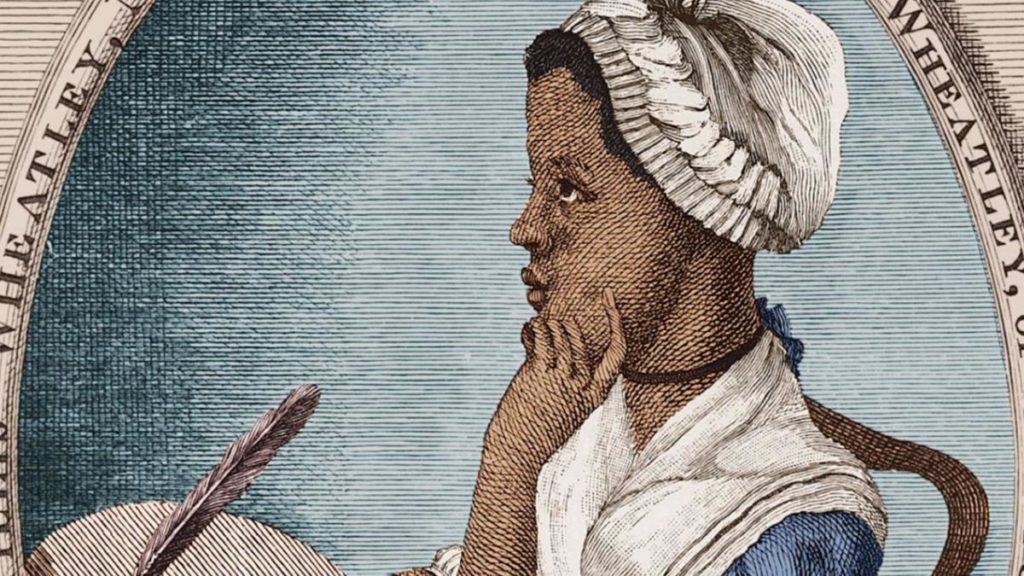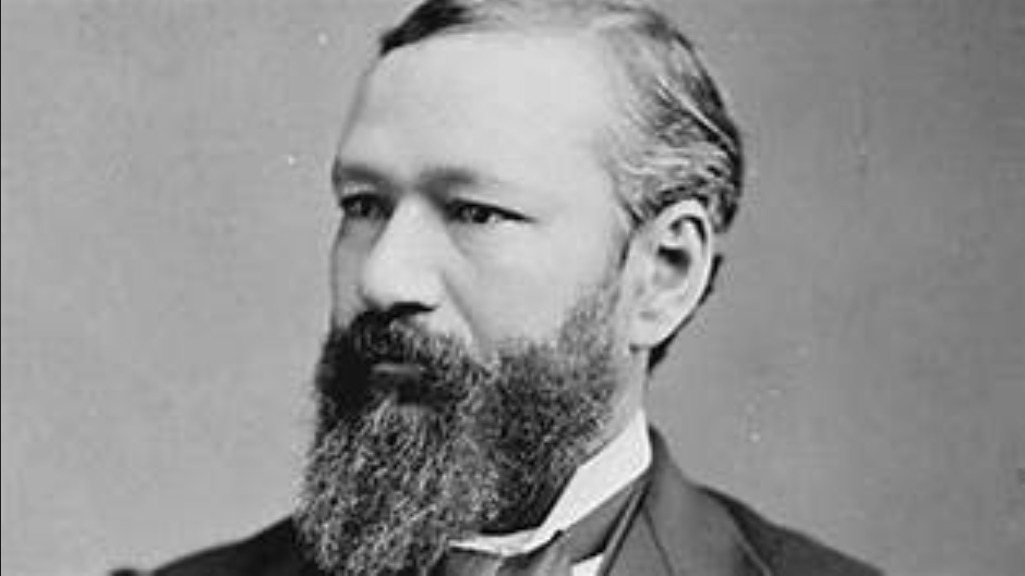Phillis Wheatley was the first African American and second woman (after Anne Bradstreet) to publish a book of poems.

Born around 1753 in Gambia, Africa, Wheatley was captured by slave traders and brought to America in 1761 where she was sold to the Wheatley family in Boston, Massachusetts. Her first name Phillis was derived from the ship that brought her to America, “the Phillis.”
The Wheatley family educated her and within sixteen months of her arrival in America she could read the Bible, Greek and Latin classics, and British literature. She also studied astronomy and geography. At age fourteen, she began to write poetry, publishing her first poem in 1767. In 1773, with financial support from the English Countess of Huntingdon, Wheatley traveled to London with the Wheatley’s son to publish her first collection of poems, Poems on Various Subjects, Religious and Moral—the first book written by a black woman in America. It included a forward, signed by John Hancock and other Boston notables—as well as a portrait of Wheatley. She was emancipated shortly thereafter.
She wrote a well-received poem praising the appointment of George Washington as the commander of the Continental Army. However, she believed that slavery was the issue that prevented the colonists from achieving true heroism.
In 1778, she married John Peters, a free black man from Boston with whom she had three children, though none survived. To support her family, she worked as a scrubwoman in a boardinghouse while continuing to write poetry. She died in December 1784, due to complications from childbirth. In addition to making an important contribution to American literature, Wheatley’s literary and artistic talents helped show that African Americans were equally capable, creative, intelligent human beings who benefited from an education, which helped the cause of the abolition movement.
Plessy v. Ferguson was a landmark decision of the U.S. Supreme Court in which the Court ruled that racial segregation laws did not violate the U.S. Constitution as long as the facilities for each race were equal in quality, a doctrine that came to be known as “separate but equal“. The decision legitimized the many state laws re-establishing racial segregation that had been passed in the American South after the end of the Reconstruction Era (1865–1877).

It began in 1892 when Homer Plessy, a mixed-race (7/8 White and 1/8 Black) resident of New Orleans, deliberately violated Louisiana’s Separate Car Act of 1890, which required “equal, but separate” railroad accommodations for white and non-white passengers. Plessy was charged with boarding a “whites-only” car, and his lawyers petitioned Judge John Howard Ferguson to throw out the case on the grounds that the law was unconstitutional. Ferguson overruled Plessy’s petition, and the Louisiana Supreme Court upheld Ferguson’s ruling. Plessy then appealed to the U.S. Supreme Court.
In May 1896, the Supreme Court issued a 7–1 decision against Plessy, ruling that the Louisiana law did not violate the Fourteenth Amendment to the U.S. Constitution and stating that although the Fourteenth Amendment established the legal equality of whites and blacks it did not and could not require the elimination of all “distinctions based upon color”. The Court rejected Plessy’s lawyers’ arguments that the Louisiana law inherently implied that black people were inferior, and gave great deference to American state legislatures’ inherent power to make laws regulating health, safety, and morals—the “police power”—and to determine the reasonableness of the laws they passed. Justice John Marshall Harlan was the lone dissenter from the Court’s decision, writing that the U.S. Constitution “is color-blind, and neither knows nor tolerates classes among citizens”, and so the law’s distinguishing of passengers’ races should have been found unconstitutional.
Plessy is widely regarded as one of the worst decisions in U.S. Supreme Court history. Despite its infamy, the decision itself has never been explicitly overruled. But a series of the Court’s later decisions, beginning with the 1954 decision Brown v. Board of Education—which held that the “separate but equal” doctrine is unconstitutional in the context of public schools and educational facilities—have severely weakened Plessy to the point that it is considered to have been de facto overruled
On January 5th of this year, Louisiana Governor John Bel Edwards granted a posthumous pardon for Homer Plessy during a ceremony outside the former train station in New Orleans where he had boarded a train bound for Covington Louisiana, before his arrest 130 years ago. “The stroke of my pen on this pardon, while momentous, it doesn’t erase generations of pain and discrimination. It doesn’t eradicate all the wrongs wrought by the Plessy court or fix all of our present challenges,” Edwards said before signing the pardon. “We can all acknowledge we have a long ways to go, but this pardon is a step in the right direction.” (See a video of the pardon signing HERE.




